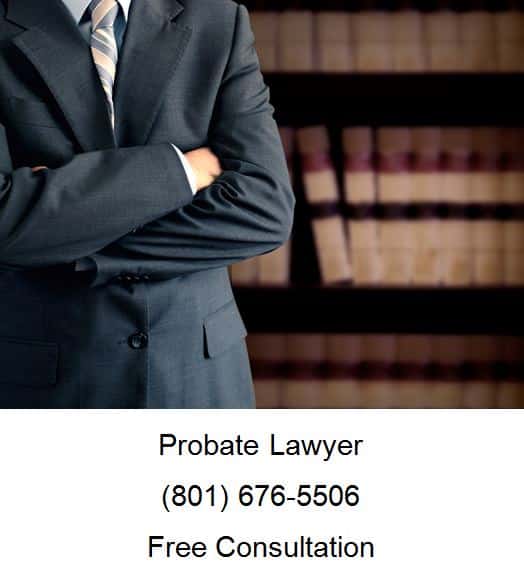Probate gets a lot of negative press. You’ve probably heard stories about how time consuming and expensive it can be. Fortunately, not all property needs to go through this legal process before it passes to your heirs. So, you ask, when is probate not necessary?
The quick rule of thumb is probate is not required when the estate is “small”, or the property is designed to pass outside of probate. It doesn’t matter if you leave a will. Let’s take a closer look at each of these exceptions.
Benefits of a Small Estate
Being small can have its advantages when it comes to probate. Most states recognize the complexity of this legal process is unnecessary for transferring a modest estate. So when the deceased’s remaining property is valued below a state-determined amount, assets can be distributed to beneficiaries without going to court. In California for example, an estate valued at $150,000 or less may not need to go to court. In Nebraska, the threshold is $50,000 or less.
Figuring out if your estate qualifies as “small” only takes a few simple steps.
- Total up the value of your “individual” property. This typically includes bank accounts, investment accounts, business interests and real estate. The value of your personal effects, such as electronics and artwork, are also factored in. It’s unlikely more disposable items, such as your shoe collection, will be considered.
- Subtract the value of property with a co-owner or designated beneficiary. This topic is reviewed in greater detail in the next section. What you need to know for now is that only assets titled in your name alone, and without a listed beneficiary, go to probate. For example, a life insurance policy with a beneficiary is not included in determining your estate value. Neither does a home held as community property.
- Determine your state’s small estate threshold: All 50 states and the District of Columbia have laws governing most aspects of estate planning and probate. This includes setting the value of the estates that must go to probate.
Sometime can be a good idea to open probate even when it’s not required, especially if there are concerns over creditor claims or beneficiary disputes. Before relying on the small estate exemption to probate, it’s important to understand the laws of your state and how your assets are valued. Losing a loved one is a difficult time for family and friends. Don’t leave things to chance.
Property that Transfers Outside of Probate
Not all property needs to go through probate. That’s good news for beneficiaries because property that passes outside of probate is distributed much sooner. Assets that typically don’t go through probate fall into the following three categories:
Jointly Owned Property
With the “right of survivorship” avoids the probate process because ownership transfers immediately to the surviving owner(s) after a co-owner’s death. There are few ways to jointly own property that creates this right of survivorship including:
-
- Community Property is the property ownership form held by married couples that has the right of survivorship. Be careful, not all states recognize the forms of joint ownership created by marriage or domestic partnerships.
- Tenancy by the Entirety is a form of ownership only available to legally recognized couples. It works much the same way as a joint tenancy with a right of survivorship, in that effectively upon the death of one spouse, the living spouse takes the deceased spouse’s portion.
- Joint Tenancy with right of Survivorship In this form you take property as “joint tenants” and upon the death of a joint tenant, the surviving tenant takes the deceased tenant’s portion.
Designated Beneficiary
The designated beneficiary is the person selected to inherit an asset, such as bank account, or the money from a life insurance policy. When you die, assets with a designated beneficiary will immediately transfer to the named person. Naming a beneficiary to many of your accounts simply requires filling out a short form. Assets that can have a named beneficiary include:
-
-
-
- Bank Accounts stating a “payable on death” (POD) beneficiary
- Investment accounts noting a “transfer on death” TOD beneficiary
- Life insurance naming a beneficiary other than the estate of the deceased
- Retirement Accounts
- Cars or boats registered in transfer on death form
-
Trusts
-
Trusts are designed to allow your family, friends and causes you care about to inherit from you without having to go through the long and expensive probate process. There are many different types of trusts serving a variety of purposes, including:
-
-
- Revocable Trusts are created during the lifetime of the person making the trust. The trust can be altered, changed, modified or revoked during the maker’s life.
- Irrevocable Trusts cannot not be altered, changed or modified once made. There trusts are good for passing larger estates and have tax savings properties.
- A Charitable Trust is made during the grantor’s lifetime. It is often a financial planning tool, often providing the trustmaker or his designated beneficiary with lifetime income with the remainder going to charity.
-
Free Consultation with a Utah Estate Lawyer
If you are here, you probably have an estate issue you need help with, call Ascent Law for your free estate law consultation (801) 676-5506. We want to help you.
8833 S. Redwood Road, Suite C
West Jordan, Utah
84088 United States
Telephone: (801) 676-5506
Helpful Estate Law Articles
How to Prepare for your Free Consultation
from Michael Anderson https://www.ascentlawfirm.com/when-is-probate-unnecessary/



No comments:
Post a Comment